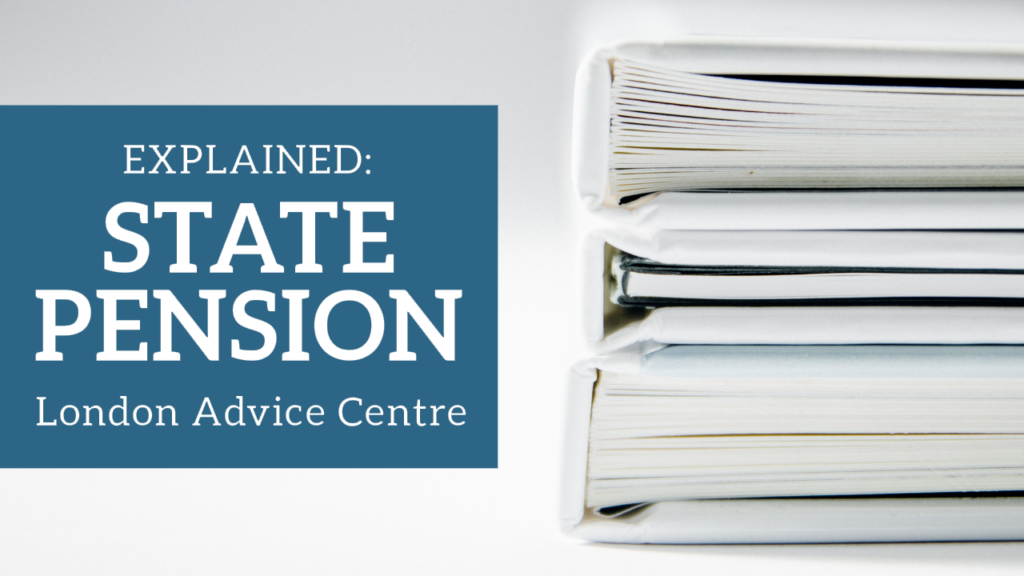
Basic State Pension
State pension (SP) was created to try and ensure that everyone has a foundation for their retirement income which increase with the rate of inflation each year. It’s funded by National Insurance (NI) contributions, what you receive is not directly impacted by how much you’ve earned over your working life but by how much you’ve contributed to NI over the years.
You have to claim your State Pension (SP), it doesn’t happen automatically. You normally get a letter 2 months before you become eligible (reach a certain age) telling you what to do. However, you can also defer your claim, if it’s your first deferral (i.e., you haven’t claimed anything yet) you won’t have to do anything and your pension will increase every 9 weeks by 1% until you claim it.
Essentially, it’s all dependable on how many ‘qualifying’ years of NI payments you have. Your NI record shows working NI contributions and NI credit (when unable to work). ‘Unable to work’ could mean claiming Employment and Support Allowance (ESA) or Job Seekers Allowance, or if you’re a carer (including children) etc.
If you don’t have enough ‘qualifying’ years you can also make voluntary contributions. Find out more here Voluntary National Insurance – GOV.UK (www.gov.uk)
Of course, you don’t have to claim the pension immediately once you become eligible, you can keep working and claim, but it won’t change your pension entitlement but may affect other benefits.
Entitlement
Check your State Pension Age here. But a quick overview for now:
Man born before 6 April 1945
Eligible for basic SP at £137.60 weekly
44 qualifying years of NI contributions, but still eligible if you have 11 years of payments.
You might qualify for Additional SP.
Man born after 5 April 1945 but before 6 April 1951.
Eligible for basic SP at £137.60 weekly
30 qualifying years of NI contributions, but with only 1 year you will still be eligible for a lesser amount
You might qualify for Additional State Pension
Man born after 6 April 1951
Eligible for New State Pension at £179.60 weekly
35 qualifying years of NI contributions for full amount, but eligible if only 10 years have been paid.
Woman born before 6 April 1950
Eligible for basic SP at £137.60 weekly
39 qualifying years of NI contributions, but still eligible if you have 10 years of payments.
You might qualify for Additional State Pension.
Woman born after 5 April 1950 but before 6 April 1953
Eligible for basic SP at £137.60 weekly
30 qualifying years of NI contributions, but with only 1 year you will still be eligible for a lesser amount
You might qualify for Additional State Pension
Woman born after 5 April 1953
Eligible for New State Pension at £179.60 weekly
35 qualifying years of NI contributions for full amount, but eligible if only 10 years have been paid.
As you can see, State Pensions are divided into various age ranges of men and women alone so your pension might be affected if you’re transgender. If you have legally changed your gender and have started claiming on/after 4 April 2005 then you’re claim will be with your legal gender, but if this isn’t the case please refer to gov.uk for more information Transgender people: equal treatment for State Pension – GOV.UK (www.gov.uk). If you were born between 24 December 1919 and 3 April 1945 your entitlement may be affected.
If you need assistance or guidance with claiming your Pension, or are having issues regarding your pension, please contact London Advice Centre for your personalised pension consultation.
Additional State Pension
This is an extra sum of money you could be entitled to if you qualify (see above); this is an automatic benefit you receive if you qualify. Although there is no fixed amount there are some determining factors:
- Your earning
- Years of NI contributions
- Whether you’re contracted out (via your employer)
- Whether you’ve topped up your basic State Pension (only possible between 12 October 2015 to 5 April 2017)
Some handy websites for you to refer to for further information if we haven’t covered what you’re looking for
Age UK – http://www.ageuk.org.uk/
The Pensions Advisory Service – http://www.pensionsadvisoryservice.org.uk/
Citizens Advice – State Pension – Citizens Advice
Please note: this post was written in line with guidance at the time of publishing. For the most up-to-date guidelines please refer to gov.uk